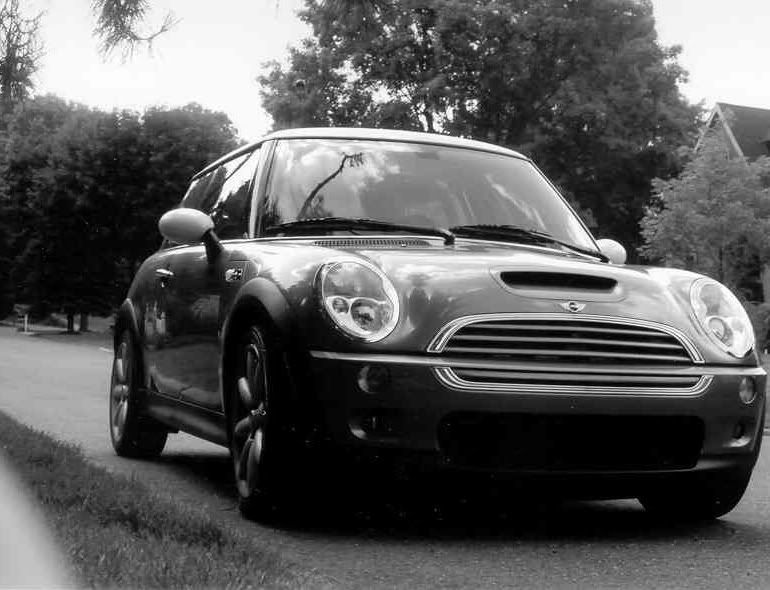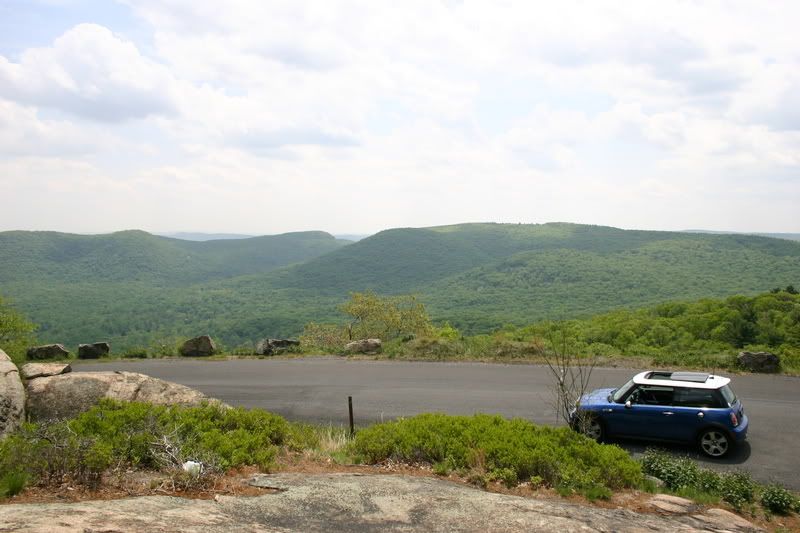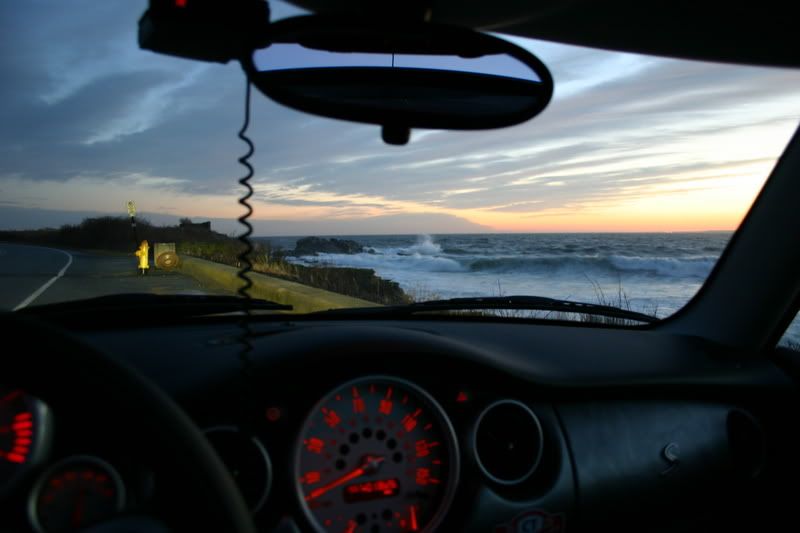Old School Camera Fun and My New Toy!
#26
Things like composition, lighting, aperture, focal lengths, shutter speed, depth-of-field, white balance, exposure compensation, etcetera etcetera etcetera are just as relevant with digital photography as they are with film.
#27
Perhaps it's in the same spirit as sail training vessels. The U.S. Coast Guard puts some trainees through sail training on the square rig tall ship Eagle. Running a square rig has little to do with a cutter etc., but teaches much about heritage and history.
I think a decent education in any art or technology should cover some of the history of what preceeded.
I think a decent education in any art or technology should cover some of the history of what preceeded.
#29
Perhaps it's in the same spirit as sail training vessels. The U.S. Coast Guard puts some trainees through sail training on the square rig tall ship Eagle. Running a square rig has little to do with a cutter etc., but teaches much about heritage and history.
I think a decent education in any art or technology should cover some of the history of what preceeded.
I think a decent education in any art or technology should cover some of the history of what preceeded.
I just don't think that an entire course in 35mm film photography should be a prerequisite before you can take the digital photography course. And in another generation, I predict that it won't be.
#30
Fine, but an entire course? Do aspiring writers have to complete an entire course using a manual typewriter before they can use word processors? Do drawing students have to make their own paper for their first semester?
And if you're worried about "foundation", why use 35mm film? 35mm film is about as far removed from the "foundations" of photography as a 1955 Cadillac is to the "foundation" of automotive engineering.
If you want to learn about the foundations of photography, why not go back to the beginning and use home-made 8" x 10" (or larger) wet plates? That'll teach you something about exposure and lighting! Or at the very least, use 4" X 5" large-format film for the class, since that's a medium that will be around longer in professional use than 35mm film.
The 35mm film class is a prerequisite because that's what the faculty and instructors grew up with. Once that's passed, the situation will change.
The *true* foundations of photography (the nature of light, exposure, lighting, contrast, composition, perspective and the effects of lens optics, to name a few) are media-independent. They're just as important whether you're shooting 35mm, large format, medium format, 126, 110, digital, or any other format.
Photography is an art, and the art isn't in the equipment.
#31
I believe that shooting & developing film lets you really take time & see what you are shooting. You have to think about composition more. Developing does the same thing. Lets you learn to expose correctly. No easy photoshop fixes in the darkroom.
With digital it's bang, bang, bang, bang. It's too fast in some ways. Slowing down with 35mm has it's advantages. I have nothing against digital, but a good foundation with film is a real advantage. IMHO
With digital it's bang, bang, bang, bang. It's too fast in some ways. Slowing down with 35mm has it's advantages. I have nothing against digital, but a good foundation with film is a real advantage. IMHO

#32
I believe that shooting & developing film lets you really take time & see what you are shooting. You have to think about composition more. Developing does the same thing. Lets you learn to expose correctly. No easy photoshop fixes in the darkroom.
With digital it's bang, bang, bang, bang. It's too fast in some ways. Slowing down with 35mm has it's advantages. I have nothing against digital, but a good foundation with film is a real advantage. IMHO
With digital it's bang, bang, bang, bang. It's too fast in some ways. Slowing down with 35mm has it's advantages. I have nothing against digital, but a good foundation with film is a real advantage. IMHO

 .
.By the way, regarding tripods...most amateurs never use them and most professionals seldom take a shot without one. Enough said.
#33
Well, if what you want is a good foundation, try learning how to use a 4x5 (or larger!) view camera, in addition to your darkroom studies. This REALLY forces you to learn about optics, bellows extension, exposure, depth of field and focus control. Since you HAVE to use a tripod, the method of working is very exacting. It'll clean up your technique and give you a great foundation upon which you could build for the rest of your career, or you will run screaming and never take another photograph  .
.
By the way, regarding tripods...most amateurs never use them and most professionals seldom take a shot without one. Enough said.
 .
.By the way, regarding tripods...most amateurs never use them and most professionals seldom take a shot without one. Enough said.



#34
Technical advances have brought high quality digital cameras to the masses, and what do the masses do with this new found power? They shoot like monkeys and plaster the web with their narcissistic crappy images.
The brave new monkey photographers are grasping beyond their reach.

#35
 I shoot what I call "Origional or Classic" cameras and I so love that film click. I borrowed my daughters kick butt digi and hated it. Not for me. Its all about preference.
I shoot what I call "Origional or Classic" cameras and I so love that film click. I borrowed my daughters kick butt digi and hated it. Not for me. Its all about preference.With the camera you have you can shoot Infrared without fogging. I shoot IR with a Pentax K1000. If you have a B&W red filter (#25 Teffin is what I use) all you need is a roll of Kodak HIE and you are set. Look at the IR pics in my gallery. o_o
Happy shooting! Gail
#37
There are also a lot of pros...
I expect that 35mm digital like the Canon 1DsMk2 and 5d will be where a lot of the development will be. I can't wait to see what the next generation of pro 35 digital cameras will offer.
For myself, I just can't give up the precision of digital capture. What you see is what you get.
#38
While I agree that it is probably not absolutely necessary to learn film first, the manual methods have given me a much deeper understanding of the photography process and an insight into the origins of some of the antiquated terms used in photography. From personal experience, I see that digital photography can easily breed laziness. Learning on a manual camera has improved my composition skills as I have learned to make every shot count WITHOUT the aid of an LCD review feature. The cost of film, paper and materials also add up.
#39
While I agree that it is probably not absolutely necessary to learn film first, the manual methods have given me a much deeper understanding of the photography process and an insight into the origins of some of the antiquated terms used in photography. From personal experience, I see that digital photography can easily breed laziness. Learning on a manual camera has improved my composition skills as I have learned to make every shot count WITHOUT the aid of an LCD review feature. The cost of film, paper and materials also add up.
My Nikon N55 35mm film camera (which I've been unsuccessfully trying to give away in this thread) has an "Auto" setting, as well as pre-programmed settings banks for portraits, night shots, action shots, and landscapes). The level of automation has nothing to do with whether the camera is film or digital.
I absolutely agree that a beginning photography class needs to be taken with a *manual* camera (or an SLR with a "manual" mode), but there's no reason that it should have to be a *film* camera.
If you really want to discipline yourself with a digital camera while you're learning photography, turn off the "LCD Preview" function of your camera, set it in "Manual" mode, limit yourself to 24 or 36 exposures per memory card, and make yourself wait two hours between taking the shots and viewing them on your computer. You obviously don't have to keep doing this forever, but it's a good exercise for beginners.
Denying yourself the instant feedback and ability to blindly shoot hundreds of pictures in the hopes that you'll get a few "keepers" will force you to pay more attention to your exposure settings, lighting, contrast and composition.
#40
I understand what you are saying. I have a new Canon 30D that serves as my regular camera. Although I nearly always use it in a manual mode, I have never given much thought into the "why" of what I was doing. The film class has given some perspective and has helped me appreciate photography a little more than I did when I was editing photos on the computer after spending 15 hours a day in front of a computer at work. I agree that it is probably unnecessary, though. And I am interested in the Nikon. I will send you a PM.
#41
I got your PM and replied - I'll put the camera in the mail on Wednesday.
My D50 has all the pre-programmed modes on it as well for portrait, landscape, night portrait, baby photo, sports, and macro, but I've never used them. I'm either in "Manual" mode for most of my shooting, or I'll put it in "Auto" if the light's extremely variable or if I just need a "quickie" shot to illustrate something for a web post.
I do often use the shutter-priority and aperture-priority modes, though. Given the aperture or shutter speed I want to use, I already know how to figure out the other value, so I don't mind letting the camera do it for me occasionally.
I'm planning on upgrading to the D200 for my next camera, and I was glad to hear that the D200 has done away with the other shooting modes, though. That's six fewer control settings that I'll never use.
My D50 has all the pre-programmed modes on it as well for portrait, landscape, night portrait, baby photo, sports, and macro, but I've never used them. I'm either in "Manual" mode for most of my shooting, or I'll put it in "Auto" if the light's extremely variable or if I just need a "quickie" shot to illustrate something for a web post.
I do often use the shutter-priority and aperture-priority modes, though. Given the aperture or shutter speed I want to use, I already know how to figure out the other value, so I don't mind letting the camera do it for me occasionally.
I'm planning on upgrading to the D200 for my next camera, and I was glad to hear that the D200 has done away with the other shooting modes, though. That's six fewer control settings that I'll never use.
#42
Kodak HIE

Here's one (clickable) example of my infrared pics.
http://www.flickr.com/photos/iguana_azul/16097431/
-J/C
#43
Well I caught this one a little late; I totally would have taken the Nikon.
As for the film/digital debate, I really enjoyed using my AE-1 (yep I've got one too) which is all manual, with a tripod, developing my own film, and printing my own paper. There is just something about doing the whole process yourself which I won't say has a great effect on the "art" of it...more like the craftsmanship of it.
There is some skill, and therefore satisfaction, involved in the shooting film to having a final print process. It is the same reason why I spend tons of time and money restoring cars myself, I find great satisfaction in the manual process and also being enthusiastic to learn about how cars were to see how far they have come. The same goes for me with photography.
Also, with that being said, ever since I have got a Canon Digital Rebel (3 yrs) I have NOT even tried using it in manual mode. It just takes such great pictures as it is. Although I do usually turn off the flash and use a tripod. But of course I know that I need to do that coming from my film experience. I am waiting for the time to learn it.
Examples...here is a scan of my 03 MCS which I believe I took with my AE-1, yes that is my toe in the lower left, I was laying on the ground

And here is a shot from my Digital Rebel

More to come as I take some fresh shots off my digital.
As for the film/digital debate, I really enjoyed using my AE-1 (yep I've got one too) which is all manual, with a tripod, developing my own film, and printing my own paper. There is just something about doing the whole process yourself which I won't say has a great effect on the "art" of it...more like the craftsmanship of it.
There is some skill, and therefore satisfaction, involved in the shooting film to having a final print process. It is the same reason why I spend tons of time and money restoring cars myself, I find great satisfaction in the manual process and also being enthusiastic to learn about how cars were to see how far they have come. The same goes for me with photography.
Also, with that being said, ever since I have got a Canon Digital Rebel (3 yrs) I have NOT even tried using it in manual mode. It just takes such great pictures as it is. Although I do usually turn off the flash and use a tripod. But of course I know that I need to do that coming from my film experience. I am waiting for the time to learn it.
Examples...here is a scan of my 03 MCS which I believe I took with my AE-1, yes that is my toe in the lower left, I was laying on the ground

And here is a shot from my Digital Rebel

More to come as I take some fresh shots off my digital.
#45
#46
Don't know if this was directed at me but I just finished the 12 exposure roll (200)  and will be getting it developed this week. I might get scans as well depending on if they are not too crappy. Basically, I was taking the same shots and varying the shutter speed and aperture. I took notes on each shot so I can get a feel for what works.
and will be getting it developed this week. I might get scans as well depending on if they are not too crappy. Basically, I was taking the same shots and varying the shutter speed and aperture. I took notes on each shot so I can get a feel for what works.
 and will be getting it developed this week. I might get scans as well depending on if they are not too crappy. Basically, I was taking the same shots and varying the shutter speed and aperture. I took notes on each shot so I can get a feel for what works.
and will be getting it developed this week. I might get scans as well depending on if they are not too crappy. Basically, I was taking the same shots and varying the shutter speed and aperture. I took notes on each shot so I can get a feel for what works.
#47
#48
I have the Sekonic L-358 light meter, and I've found it to be very helpful, especially when working with external flashes. It will even allow you to calculate what percentage of the overall lighting will come from ambient lighting and what percentage will come from the flash illumination.
I don't know what level of automation would be considered "cheating" for your purposes, but considering that my 25-year old 35mm film camera has an analog light meter needle in the viewfinder, and handheld light meters have been around for decades, I don't think it using one would be a problem, assuming that they haven't been expressly forbidden by your instructor.
I don't know what level of automation would be considered "cheating" for your purposes, but considering that my 25-year old 35mm film camera has an analog light meter needle in the viewfinder, and handheld light meters have been around for decades, I don't think it using one would be a problem, assuming that they haven't been expressly forbidden by your instructor.
#50
I've been at this a while, but good for you to mention that.
Happy hump day! PB





